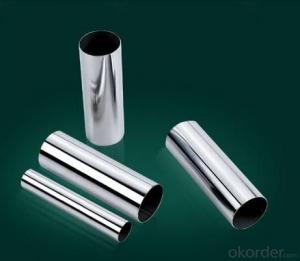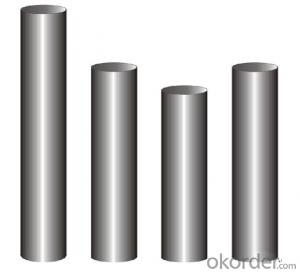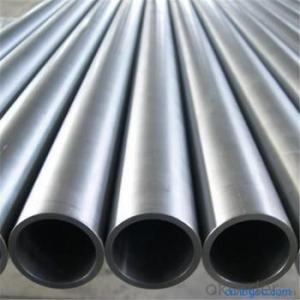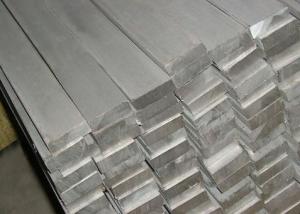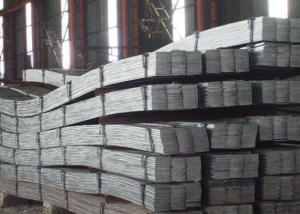Seamless Steel Pipe/Tube for Petroleum Cracking Equipment
- Loading Port:
- Shanghai
- Payment Terms:
- TT OR LC
- Min Order Qty:
- 1000 kg
- Supply Capability:
- 10000 kg/month
OKorder Service Pledge
OKorder Financial Service
You Might Also Like
Nickel200/UNS N02200/Alloy200/W.Nr.2.4066 is a pure nickel alloys. and we could supply seamless pipes/tubes
1) Specifications: OD: 10.3 - 273 mm and THK: 1 - 20 mm
2) Grades:
Nickel Alloy: Alloy 200,400,600,625,800,800H,825,etc..
Duplex/Super Duplex:S31803,S32750,S32760,S31500
Austentic/Super Austenitic:
304/L,316L/Ti,321,347H,316Lmod,317L/N,310S,310MolN,253MA,330,904L,S31254,XM-19
3) Made according to the standards of ASTM B161,163,165,167,407,444,677, etc.
4) Packing: wooden box or knit bag
ASTM A335 Seamless Alloy-Steel Pipe
Standard: BS 1139, BS 3059-2, JIS G3454-2007
Grade: 10#-45#, 15NiCuMoNb5, 10Cr9Mo1VNb
Detailed introduction to ASTM A335 seamless alloy steel pipe:
ASTM A335 seamless alloy steel pipe
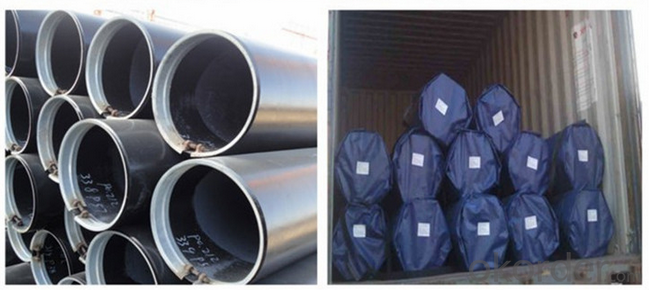
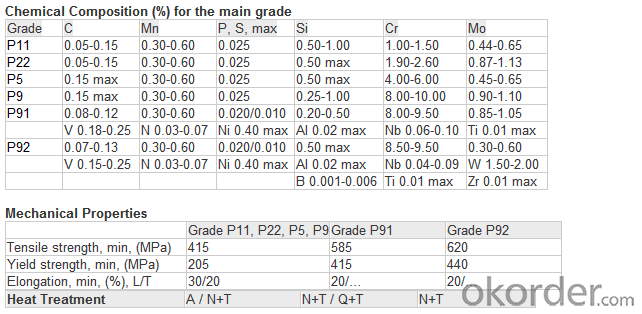
FAQ:
1) why you chose us ?
Professional Manufacturer and supplier of Steel pipe
More than 14 years’ professional producing experience
We can get the lowest ex-factory prices. The price are quite reasonable and it is lower than our commercial peers. also, we can guarantee the qualities of our products.
BV, ISO certificates and SGS test can be provided to assure the quality of our products.
2) Our minimum order quantity:
10 Metric Tons or one 20ft or 40ft Container.
3) How about the Delivery Time?
The steel pipe will be produced since we getting your deposit by T/T or Your original L/C. For normal size, some stocks in our factory now, we can supply once you need.
4)What kind of payment does your company support?
T/T, 100% L/C at sight, Cash, Western Union are all accepted.
5) Do you charge for the samples?
According to our company principle, we just charge for samples, you pay for the freight /courier charge.
6) Main market:
Mid East, South America, Africa, Southeast Asia, India etc
- Q:Are stainless steel pipes suitable for irrigation systems?
- Yes, stainless steel pipes are suitable for irrigation systems. Stainless steel is known for its excellent corrosion resistance, durability, and strength, making it an ideal choice for irrigation systems that are exposed to water and moisture. Stainless steel pipes can withstand high-pressure conditions and are resistant to rust and corrosion, ensuring a long lifespan and minimal maintenance requirements. Additionally, stainless steel pipes are also safe for conveying water for irrigation purposes as they do not leach harmful chemicals into the water supply.
- Q:Can stainless steel pipes be used in the automotive industry?
- Yes, stainless steel pipes can be used in the automotive industry. Stainless steel is a highly durable and corrosion-resistant material, making it ideal for various applications in the automotive sector. Stainless steel pipes are commonly used in exhaust systems, where they can withstand high temperatures and resist the corrosive effects of gases and condensation. Additionally, stainless steel pipes are also used in fuel delivery systems, brake lines, and hydraulic systems, where their strength and resistance to corrosion are essential. Overall, stainless steel pipes offer excellent performance and longevity in the demanding conditions of the automotive industry.
- Q:What is the difference between 409 and 316 stainless steel pipes?
- The main difference between 409 and 316 stainless steel pipes lies in their composition and intended use. 409 stainless steel is a ferritic stainless steel, meaning it contains a higher amount of chromium but lower amounts of nickel compared to 316 stainless steel. This makes 409 stainless steel less resistant to corrosion and oxidation, but it is still suitable for applications that involve moderate levels of corrosion resistance, such as automotive exhaust systems and heat exchangers. On the other hand, 316 stainless steel is an austenitic stainless steel that contains higher amounts of both chromium and nickel. Due to its composition, it offers excellent corrosion resistance, even in harsh environments, and is often used in applications where superior resistance to corrosion is required, such as marine environments, chemical processing plants, and medical equipment. In summary, the key differences between 409 and 316 stainless steel pipes are their composition and corrosion resistance. 409 stainless steel is suitable for applications with moderate levels of corrosion resistance, while 316 stainless steel is preferred for applications that require superior corrosion resistance in harsh environments.
- Q:What kind of welding machine is used for welding thin stainless steel plate and stainless steel square tube?
- 1 argon arc welding machine! If the person who has not been married, as little as possible, that thing has radiation, long time use of physiology is influential. You know what you do.2, regardless of the front and back can be, as long as it looks beautiful and practical.3, welding technology is good, it will not be ugly after welding.4, only the use of technology to make up for the lack of machinery, and then cattle B hardware, there is no good software is not good.5, welding rod, protective mask and so on.
- Q:Are stainless steel pipes suitable for wastewater treatment facilities?
- Yes, stainless steel pipes are highly suitable for wastewater treatment facilities. Stainless steel is known for its excellent corrosion resistance, making it ideal for handling highly corrosive wastewater. Its resistance to chemicals and acids ensures that the pipes do not degrade over time, reducing the risk of leaks and contamination. Stainless steel pipes are also hygienic and easy to clean, which is crucial in wastewater treatment facilities where maintaining cleanliness is essential. Additionally, stainless steel pipes have a high strength-to-weight ratio, allowing for easy installation and reducing the need for additional support structures. Therefore, stainless steel pipes are a reliable and durable choice for wastewater treatment facilities.
- Q:Can stainless steel pipes be used in food processing plants?
- Yes, stainless steel pipes can be used in food processing plants. Stainless steel is a common choice in the industry due to its corrosion resistance, durability, and ability to withstand high temperatures. It does not react with food or contaminate it, making it a safe and hygienic option for transporting food and beverages in processing plants.
- Q:Can stainless steel pipes be used in the renewable energy industry?
- Certainly, stainless steel pipes can be utilized in the renewable energy sector with great effectiveness. Stainless steel is an incredibly versatile and durable material that presents numerous advantages for diverse applications within renewable energy systems. One of the primary advantages of employing stainless steel pipes lies in their exceptional resistance to corrosion. This attribute renders them highly suitable for deployment in environments where exposure to moisture, chemicals, and other corrosive elements is prevalent. For instance, solar power plants, geothermal energy systems, and offshore wind farms benefit immensely from the ability of stainless steel pipes to endure these harsh circumstances and maintain their structural integrity over extended periods. Consequently, the frequency of repairs and replacements is minimized. Another merit of stainless steel pipes is their excellent strength-to-weight ratio, facilitating the design of lightweight and efficient structures for renewable energy endeavors. These pipes can be utilized in constructing support frames, structures, and pipelines for wind turbines, solar thermal collectors, and biomass power plants, among other applications. Their strength and durability contribute to the overall reliability and longevity of renewable energy systems. Moreover, stainless steel pipes exhibit resistance to extreme temperatures, making them highly appropriate for deployment in high-temperature scenarios like concentrated solar power systems. These pipes can withstand the intense heat generated by solar receivers without suffering deformation or degradation, ensuring the efficient transfer of heat within the system. In addition to their mechanical properties, stainless steel pipes are also hygienic and environmentally friendly. They are easily cleaned and maintained, thereby reducing the risk of contamination and ensuring the purity of fluids utilized in renewable energy processes. Furthermore, stainless steel is a recyclable material, aligning perfectly with the sustainability principles of the renewable energy industry. In summary, stainless steel pipes offer a dependable, long-lasting, and cost-effective solution for a wide range of applications within the renewable energy sector. Their corrosion resistance, strength, temperature tolerance, and environmental benefits make them an exceptional choice for fluid transportation, structural support, and the ability to withstand the demanding conditions encountered in renewable energy systems.
- Q:Can stainless steel pipes be used in food processing industries?
- Stainless steel pipes find widespread use in the food processing industry. This material possesses remarkable durability and resistance to corrosion, making it capable of enduring the challenging conditions and elevated temperatures frequently encountered in food processing plants. Moreover, its non-reactive nature guarantees that it won't interact with food or affect its flavor, rendering it a secure option for transporting diverse food products. Furthermore, stainless steel pipes facilitate effortless cleaning and maintenance, thus ensuring the fulfillment of hygiene standards within the food processing sector.
- Q:Can stainless steel pipes be used for structural applications?
- Yes, stainless steel pipes can be used for structural applications. Stainless steel is known for its high strength-to-weight ratio, corrosion resistance, and durability, making it a suitable material for various structural applications. Stainless steel pipes are commonly used in construction, infrastructure, and industrial projects, where the pipe's strength and resistance to corrosion are crucial. They are often used for structural supports, frameworks, and load-bearing applications in buildings, bridges, stadiums, and other structures. Additionally, stainless steel pipes have excellent structural integrity, allowing them to withstand heavy loads, extreme temperatures, and harsh environmental conditions. Therefore, stainless steel pipes are a reliable choice for structural applications.
- Q:Can stainless steel pipes be insulated with Teflon?
- No, stainless steel pipes cannot be insulated with Teflon. Teflon is not suitable for insulation purposes as it is a non-conductive material and lacks the necessary thermal properties to effectively insulate pipes.
1. Manufacturer Overview |
|
|---|---|
| Location | |
| Year Established | |
| Annual Output Value | |
| Main Markets | |
| Company Certifications | |
2. Manufacturer Certificates |
|
|---|---|
| a) Certification Name | |
| Range | |
| Reference | |
| Validity Period | |
3. Manufacturer Capability |
|
|---|---|
| a)Trade Capacity | |
| Nearest Port | |
| Export Percentage | |
| No.of Employees in Trade Department | |
| Language Spoken: | |
| b)Factory Information | |
| Factory Size: | |
| No. of Production Lines | |
| Contract Manufacturing | |
| Product Price Range | |
Send your message to us
Seamless Steel Pipe/Tube for Petroleum Cracking Equipment
- Loading Port:
- Shanghai
- Payment Terms:
- TT OR LC
- Min Order Qty:
- 1000 kg
- Supply Capability:
- 10000 kg/month
OKorder Service Pledge
OKorder Financial Service
Similar products
New products
Hot products
Related keywords
